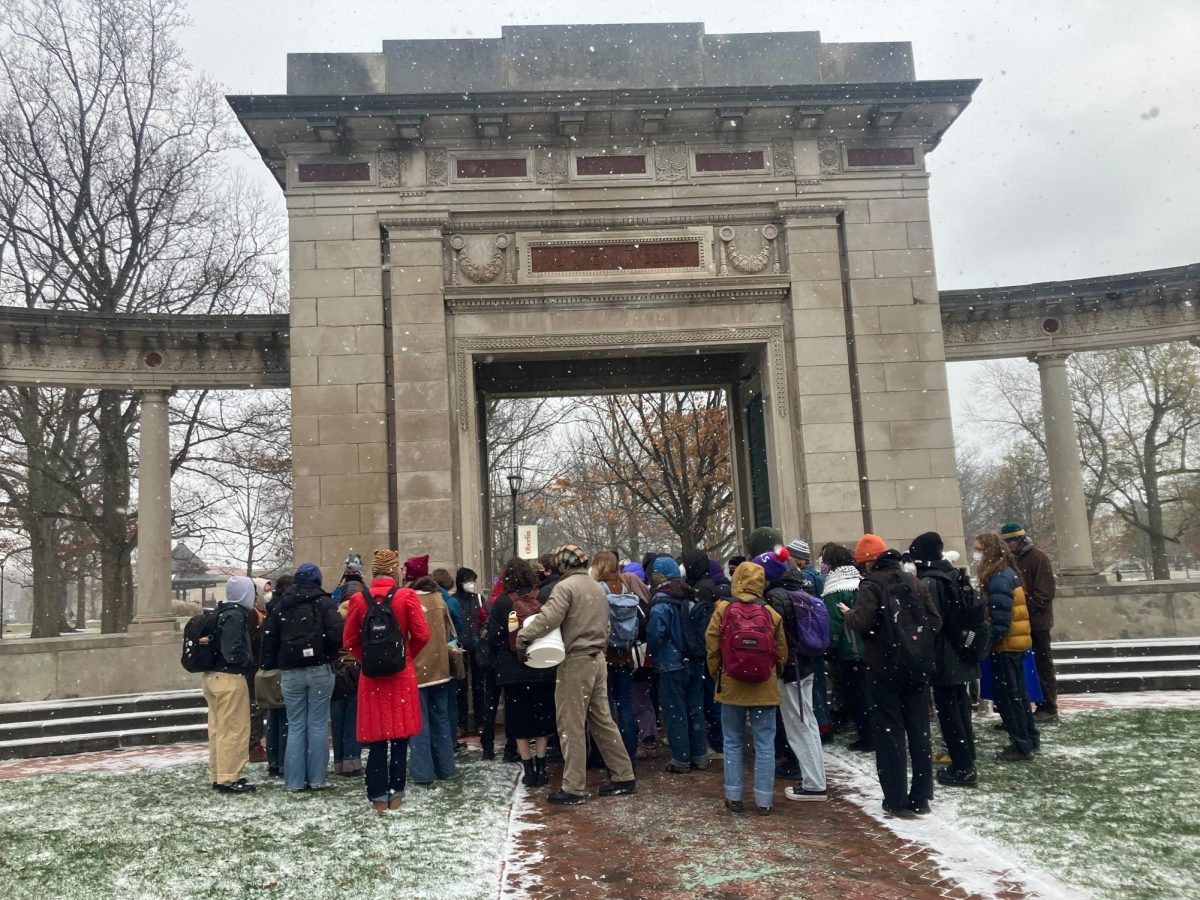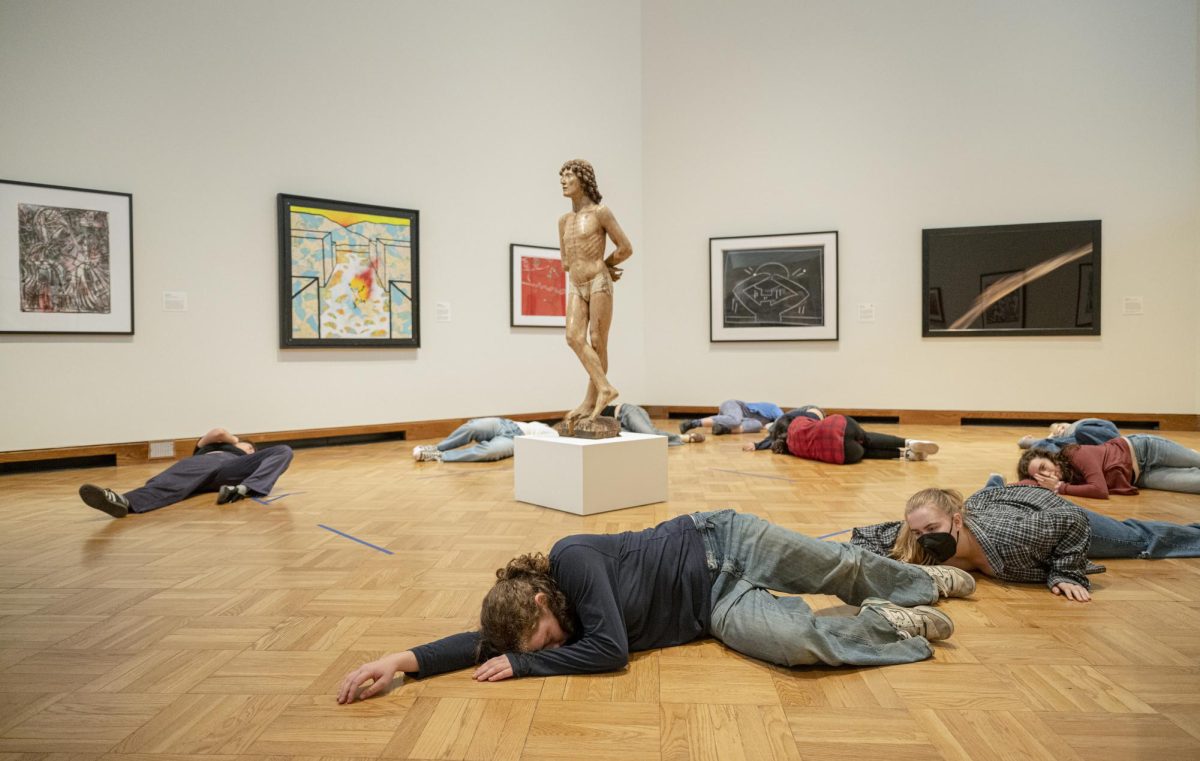On Jan. 17, Israel destroyed Israa University, Gaza’s last standing university, according to the United Nations website. There are no universities left in Gaza. This, along with the murdering of academics such as Refaat Alareer and the hindering of access to education due to displacement and ethnic cleansing, is scholasticide. Scholasticide has been a key part of Israel’s genocidal campaign against Palestinians since its inception, although the term was coined in 2009 after an uptick in Israeli targeting of education institutions and academics. Dr. Karma Nabulsi, former Palestine Liberation Organization representative and Oxford professor, stated that Israel knows “how important education is to the Palestinian tradition and the Palestinian revolution,” and that that is why they seek to decimate it. If you erase a people’s capacity to learn and create, you effectively erase their future. This is part of why education has been and continues to be critical to revolutionary movements across the globe and one of the reasons that students internationally are building encampments in solidarity with Palestine.
Despite this (or perhaps because of it), American academic institutions that posit themselves as places that value education and rigorous discourse not only refuse to condemn Israel but continue to contribute to its genocide of Palestinians. They expose themselves not as places of learning but as maintainers of the status quo and stakeholders in imperialism. And, as students attending these institutions and financing their endowments with our tuition, we are complicit. We must refuse this.
It is with this in mind that I look at Oberlin. On Friday, April 19, the College held one of its All Roads events in which it welcomed prospective students to campus so that they can get a taste of life at Oberlin. Oberlin Students for a Free Palestine and Oberlin Jews for a Free Palestine decided to take that opportunity and make it clear to our possible future peers what the reality of Oberlin is: a college with an over $1 billion endowment that gives its money to weapons manufacturers. A rally outside of the Hotel at Oberlin took place, the intention of which was to “engage with [prospective students] about divestment and show them how our Oberlin community shows up for Palestine,” as was described on the Oberlin Jews for a Free Palestine Instagram. This was followed by a teach-in later in the day about divestment at Oberlin, led by SFP, which discussed the history of divestment at Oberlin, the reality of Oberlin’s current investments, and the necessity for divestment from Israel.
The choice to disrupt All Roads was a critical one. Prospective students promise prospective money and the Oberlin admin and Board of Trustees have made it clear that their main concern is not with humanity and stopping genocide but instead with finances. In an interview with the Review, Board of Trustees Chair Chris Canavan stated that full divestment from Israel could lose the college $30-40 million from the endowment annually (“Oberlin Students for a Free Palestine Meet with Board of Trustees, Discuss Divestment from Israel,” The Oberlin Review, Mar. 15, 2024). For a board that has stated time and time again that their investments are indirect and therefore difficult to pin down, they seem to know exactly what it would cost them to stop contributing to genocide.
The role of American higher universities in financing the genocides of Palestinians, Haitians, Congolese, and all Black and brown people both domestically and globally who are targeted by the US war machine, while simultaneously being places of learning, makes the current wave of student occupations, encampments, and resistance all the more vital. On Monday, Oberlin students joined the thousands across the country who have set up encampments in solidarity with and demanding justice for Palestine. The space has been holding teach-ins, shared meals, art builds, and even houses a community library. Unlike these institutions of higher education that have us read the works of revolutionary thinkers and proudly name libraries after them but sic the police on their own students when they protest, we believe in putting what we learn into practice. Again, we see collective education being central to collective action.
In response, the imperial boomerang — a term referring to the idea that the tactics that governments test and use abroad on predominantly non-white or Western countries and that peoples will inevitably be turned inwards against their citizens — is in full effect. Universities have called riot cops onto their campuses, resulting in violent arrests and assaults against protesters, with the usage of force, pepper spray, and rubber bullets being documented. These struggles materially link us, as we are all being subjected to the US military and police’s repression and violence. However, we must remember that these tactics are not new but a pattern of these institutions, as exemplified by the Kent State and Jackson State massacres of 1970.
As student action gains media attention and tools of cooptation are employed, we must also continually reorient ourselves and remember the reason these actions are necessary. When asked by a reporter if they were scared of the consequences of their involvement in encampment and possible police violence, one student responded by saying, “No. I think that the children in Gaza are more scared than I am.” As students gather on campus and are met with police, state, and academic repression and violence, Palestinians in Gaza continue to be bombed, starved, and face increased health concerns. Palestinians in the West Bank are subjected to continued settler violence, increased kidnapping by the Israeli occupying forces, and murder. This is why we resist. And to all those saying that these encampments are unimportant or the organizing being done will not create change, I beg you to look around. Palestinians in Rafah are writing on the sides of their tents that the students give them hope. We do not deserve nor need their thanks, but to know that they see the work being done and that it means something to them is the soul of why this work is critical.
As we go into the summer, we must continue the fight for Palestine, for Sudan, for Congo, for Haiti, and for and alongside all subjugated and oppressed groups seeking their freedom. Campuses provide a critical space for organizing and creating material change, as seen with the institutional ties that almost every university and college across the country has with Israel and weapons manufacturing. However, we must be adaptable. Our school year may be coming to an end, but the resistance lives on. Long live the student revolution, long live the intifada, long live the resistance.




